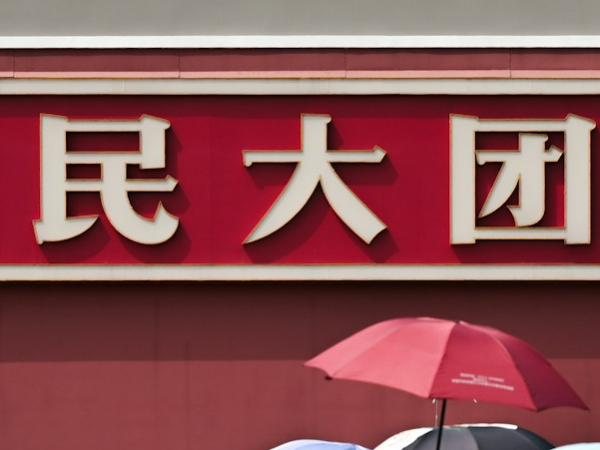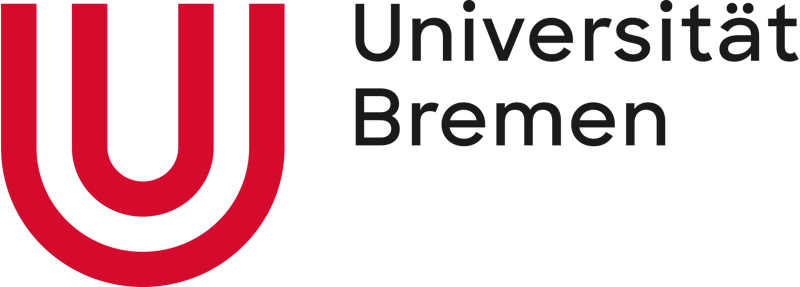Although social protection for internal migrants in Vietnam faces several limitations and challenges, good practices implemented by various actors during the COVID-19 pandemic have promoted shifts toward more inclusive policies.
Shortcomings in Social Protection for Migrants in Vietnam
The Covid-19 pandemic revealed that social protection for migrants in Vietnam faces several limitations and, at the same time, allowed for the development of more inclusive social policies. Internal m comprise 7.3% of Vietnam’s population but also constitute an important part of the Vietnamese economy, overrepresented (at 8.6%) in the country’s labor force. During the Covid-19 pandemic, lockdown measures at the national and provincial levels implemented from 2020 to 2022 especially affected this vulnerable group. To ensure mitigate the negative effects of these measures, the national government introduced several policies, including programs that entitled migrant workers to cash transfers with differentiated rates determined by their labor status.
In turn, some challenges and limitations to social protection for migrant workers in Vietnam also became apparent, especially with regard to long-term institutional support and effective social protection:
First, the challenges to accessing critical public services and maintaining food security and social protection measures. In Vietnam, the Hộ khẩu (household registration) system assigns members of a given household in a specific location. As migrant workers are unable to register themselves under this system, they are in principle not entitled to social protection measures and public services. Social insurance exists, but remains unaffordable for many. Although the Law on Social Insurance provides for voluntary social insurance, the number of employees participating amounts only to 3.92% of Vietnam’s total labor force.
Regarding health care, health insurance coverage has increased rapidly in the country (reach). Even migrant workers have health insurance cards, but they do not use the cards for medical examination and treatment. In order to use their health insurance, they must often return to their hometowns for medical examinations and treatments due to the system’s inflexibility in terms of changing their legal residence.
In terms of education, the high population density in migrants’ factual places of residence (often cities with more job opportunitie) puts local infrastructure and capacity to the test. Public schools give priority to those locally registered over migrants, who are thus inclined to enroll their children at higher-cost private schools. Consequently, the rate of migrant children attending primary and secondary education is lower than that of non-migrant children.
Second, migrants’ jobs tend to be precarious and informal, existing outside formal legal frameworks. This makes it difficult for them to access legal protections and social benefits, reduces their bargaining power against employers, leaves them vulnerable to exploitation and unsafe working conditions, and prevent them from accessing certain forms of government support. This last barrier became evident during the pandemic.
In response to the Covid-19 pandemic, the government implemented policies to financially support people with suspended or terminated contracts (Resolution 68/NQ-CP dated 1 July 2021). Employees who lost their jobs due to Covid-19 were also supported by the Unemployment Insurance Fund depending on the duration of payments into the system, with monthly support ranging from 1.8m to 3.3m VND (around to 142 in July 2021) (Resolution 116/NQ-CP). However, the extent to which these policies benefited migrant workers crucially depended on other actors, such as residence owners and employers, who could provide documents verifying that workers lived in areas heavily affected by Covid-19 or under Covid-19 restrictions.
During the pandemic, migrant workers also received support in kind (such as food and consumables), although the frequency and value of support varied across the provinces of country due to implementation logistics. For example, Fatherland Front, an umbrella coalition of social movements that organised donations, reported they were unable to predict what would be available, in what quantity, and when. When the organisation’s staff received a donation, they informed local leaders, who would then generate a list of people in need of donations. Sometimes, they needed to distribute the donated food quickly, so it was difficult to prioritise depending on recipients’ needs. While Fatherland Front recognised that migrants were more vulnerable than local residents because of the precarity of their jobs, lack of networks, and poor living conditions, their distribution effort did not specifically target them.
Third, migrants are often unaware of their rights and entitlements under existing social policies, making it challenging for them to advocate for better working conditions and greater access to social services.
In our research project, we surveyed forty migrant workers, twenty of them free laborers, and twenty with labor contracts. The results showed that free laborers had little to no knowledge of Vietnamese labor law. Only one respondent answered correctly, and there were questions that no free laborer participant attempted to answer. The contracted group, in turn, showed only slightly better understanding, averaging three correct answers out of thirteen. One of the questions asked, regarding in which cases the employer is allowed to dismiss the employee, was answered correctly by only one respondent (a contract employee). Regarding the right to social insurance benefits, most respondents stated that they wouldn’t know the amount or end of their social insurance contributed by their employer, if they had a contract. This highlights the fact that although employees work under labor contracts, they still lack knowledge about the basis of these contracts, and do not understand well their legal rights and interests. This may be due to the complexity of labor relations between labor recruitment firms and their industrial partners, and also rapid changes in workplace (“job-hopping”) that are highly common among migrants. For free laborers, due to the fact that they work informally without a contract, they remain ineligible to participate in compulsory social insurance.
Fourth, migrant workers often lack representation and voice in decision-making processes related to social policies. This can result in policies that do not effectively address their needs and concerns. Although trade unions are present in workplaces and represent workers, flaws in the existing legal system limit welfare access for migrant workers. Shortcomings in Vietnam’s trade union system are due to its reliance on employers in financial and organizational matters, as a senior worker interviewed shared: “A significant part of the operating funds comes from the company,” and “Both chairman and deputy chairman of the trade union are concurrently holding high positions in the managerial system of the company.” Such dependence on the employer weakens their ability in voicing the rights of workers, a situation inadvertently facilitated by the existing legal framework.
Fifth, there is a gap in data and research on informal migrant workers. Available data provided by General Statistics Office and other national and international organizations delivers general information about migrants and their circumstances, but does not capture details about working conditions and migrants’ livelihoods. This makes it challenging to design targeted social policies that address their specific needs and challenges.

A group discussion with migrants in Hanoi with the board of safe green area (free of COVID-19), April 2021. Photo courtesy of Nguyen Thi Dien
Good Practices and Lessons Learned during the Covid-19 pandemic: Toward more inclusive policies
Despite these challenges and limitations, alternative interventions towards better social protection for migrant workers have been implemented by multiple actors – including the government, trade unions, community organisations, charity groups and individuals. Special programs have thus sought to mitigate the social and economic issues faced by workers and build the foundation to introduce necessary changes. The pandemic provided a fertile context for different forms of experimentation towards more inclusive policies.
- (1) Government support requires active engagement from local implementers
The central government adopted several resolutions to support migrants during the Covid-19 pandemic, including the above mentioned Resolution 68/NQ-CP dated July 1, 2021 for unemployment support, and Resolution 116/NQ-CP dated September 24, 2021 for cash transfers. In some provinces, such policies arrived just in time. In Bac Ninh province, for example, the procedure and necessary paperwork for the first phase was announced quite quickly, and therefore residence owners provided documents quickly to resident migrant workers so that they could receive support. Thus, the effectiveness of government policies toward migrants was determined by residence owners’ willingness to support migrants, but also their access to timely and clear information about documentation needed. This is a relevant consideration for future cooperation between the central government, local authorities, and communities in mitigating socio-economic risks and shocks toward vulnerable groups.
- (2) Digital innovation has reached workers. It must also reach policies.
According to our research, in Industrial Zones (IZs) with formal labor contracts had received support from the Unemployment Insurance Fund during the pandemic. They were entitled to 50%-70% percent of their last salary, the exact amount depending on each employer’s particular pay-in scheme (Labor Code, or Article 99 (3)). Companies provided wage compensation for 30 days during lockdowns. Most IZ workers received the corresponding payment automatically through a transfer from employers directly into workers’ bank accounts. Free laborers, such as construction workers, were instead generally not paid on time, though in some cases contractors voluntarily supported their employees with VND 30,000 to 50,000 (about 1 to 2 USD) per day per . In most cases, reported that they received support from their employer for daily meal costs of around VND 20,000 (less than 1 USD) per day per person.
The fact that at least financial support from formal employers was paid through online banking in direct transfers mirrored broader shifts within the Vietnamese labor market. Mobile banking has become much more common in recent years, especially in cities. Most workers, even street vendors, now use their mobile phones for their daily work. This digital revolution is also affecting other areas of life and work relevant to migrants: for instance, the restrictive Hộ khẩu system is now being replaced with a new digital resident registration system, which should bring more benefits for migrant workers.
- (3) Alternative forms of social assistance and community support were key for informal workers
Associations such as the Fatherland Front, the Women’s Union, the Youth Union, and the Farmers’ Union cooperated to support people in need during the pandemic. These organisations actively provided workers with health and safety instructions, supported prevention procedures and the distribution of essentials and medical supplies such as masks or hand sanitiser. In particular, the communal-level Fatherland Front received large donations (both in cash and in kind) from other organisations and individuals and distributed them to individuals in need. The Women’s Union advocated for residence owners to reduce rent and electricity bills, and coordinated with NGOs and local businesses to provide cash assistance to workers. Both free laborers and IZ workers borrowed cash from their colleagues and their friends or relatives to cover their own expense and remittances. Free laborers also borrowed from their contractors or employers. The participation of local communities in providing proof of residence for migrant workers was essential for the implementation of policies, and further evidences the key role of local community engagement in securing effective government support.
Residence owners also had a great influence on workers during the pandemic. They acted as a bridge between workers and authorities when there was an announcement of food assistance during the lockdown and provided lists of those needing support. Due to social distancing, each household was assigned a time slot to go to the supermarket every two days, and if migrant workers could not go out, the owners would do so for them. They acceded to reduce migrants’ rent by 30% and up to 100% during quarantine. In most cases, relationships between residence owners and workers were reported to be very supportive. These forms of support were of course fully voluntary, but they also show the community support and humanity inspired during the pandemic.
Overall, although the Covid-19 crisis did not result in major changes to social protection policies in Vietnam, it did lead to a temporary increase in migrants workers’ inclusion. It also demonstrated the need to shift from crisis response to resilience-building for migrant workers. This shift demands broadening the range of social protection measures for contracted workers and further reforming the social security system to extend the coverage and benefits to non-contractual workers, a group as of yet entirely left out of public social security and of voluntary social insurance.
This work was supported by a Marie Curie Staff Exchange
within the Horizon Europe Programme (PRELAB, grant agreement no: 101129940)
Header photo by Kate Ferguson - Unsplash








